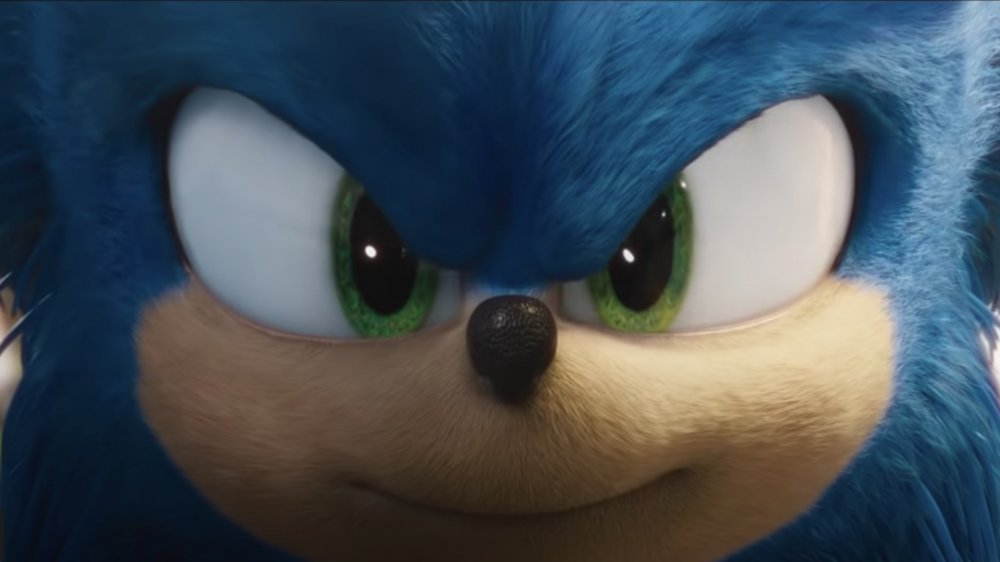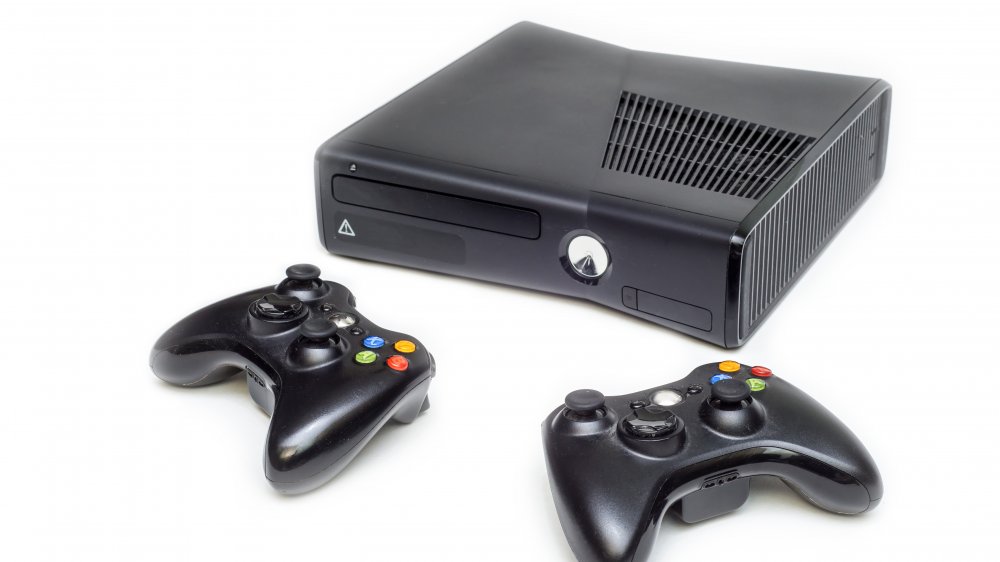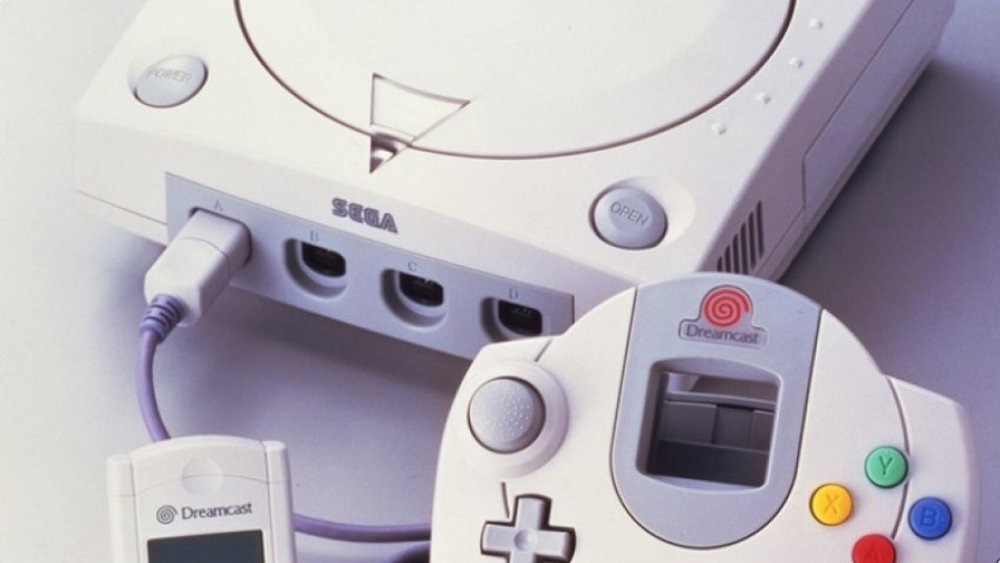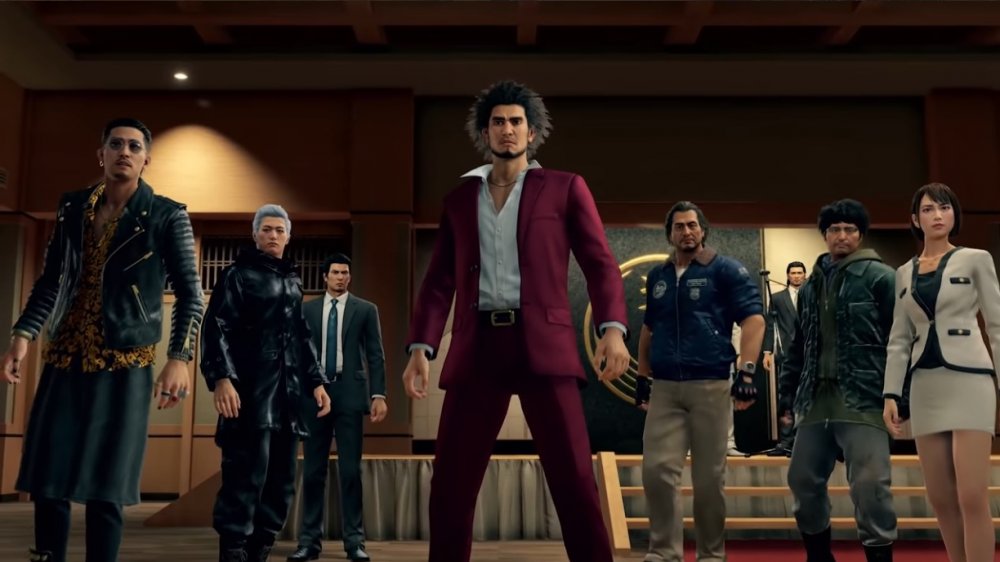Here's Why Sega Will Likely Never Make Another Console
Sega has been an influential and innovative company ever since the early days of gaming. Known for popular franchises like Sonic the Hedgehog, Puyo Puyo, Shenmue, Yakuza, Bayonetta, and Phantasy Star, Sega was also a big player in the '80s and '90s because of its gaming consoles, which competed commercially with Nintendo before Microsoft and Sony even entered the game. Many people still have fond memories of playing the Sega Genesis, the Sega Dreamcast, and the company's other forays into the hardware business.
People are so fond of Sega, in fact, that when the company was teasing a big announcement in late May 2020, many industry insiders' brains apparently went straight to: "Is Sega planning a new console?" (Spoiler alert: It was not). But why wouldn't Sega at least consider the idea, when so many gamers wax nostalgic about the Saturn and the 32X and the others? Is it really such a stretch to imagine Sega making a triumphant return to hardware?
Yes, it is. Here's why Sega will likely never make another console.
The console business is tough, man
The gaming hardware business is a notoriously difficult one. While Sony's PlayStation 4 started making a profit for Sony within six months of its November 2013 release, that's not always the case. The Xbox One, for example, has long been thought to have virtually no profit margin, even though Microsoft is always bullish about the console's sales, which it said in its Q4 2020 report were up 49 percent.
Difficulties are par for the course if mistakes are made in the console's launch — and let's face it, Sega made some doozies with its systems, like when it announced to a surprised gaming audience in 1995 that its upcoming Sega Saturn was already in stores for $399. Sony was able to follow up the same day by saying that its original PlayStation would be just $299.
Today, consoles also face competition from the mobile gaming market, not to mention cloud gaming. Mobile gaming generated $54.9 billion in revenue in 2019, according to Newzoo, and will remain the world's fastest-growing games market. While the upcoming consoles from Microsoft and Sony (both companies with deep pockets outside of their gaming enterprises) make this year a great one for increased console revenue, critics have been predicting the death of the console for several generations now.
Sega is a shadow of its former self
As the Sega Dreamcast was failing, Sega was becoming more and more cash-strapped. Business Insider reported that, during the last year of the Dreamcast's run, the company lost more than $200 million. Peter Moore, Sega of America's head at the time, recalls that Japan contacted him saying the company's hardware business could not be sustained unless it made a certain amount of money. The Dreamcast was selling up to 100,000 units a day, but that still wasn't going to be enough.
"So on January 31 2001 we said Sega is leaving hardware," Moore said. "Somehow I got to make that call, not the Japanese. I had to fire a lot of people — it was not a pleasant day."
So it could live to fight another day, Sega existed the console-making business — a move that likely saved the company. Sega also started to diversify, investing in casinos, resorts, and licensing (you did see the Sonic the Hedgehog movie, right?). While today Ed Power of The Independent calls Sega "dust in the wind" compared to its former competitor, Nintendo, it still makes third-party games, and recently members of the industry have been optimistic about Sega's return to relevance thanks to higher-quality games and better marketing.
Wishful thinking prevails
Despite Sega's more modest success today and excitement over coming titles such as Yakuza: Like A Dragon, people are still trying their hardest to give Sega its prominence back in some way. This tendency has only gotten more obvious as Sony and Microsoft enter a new console generation.
For example, recent rumors postulated that Sega would become one of the newest content creators under the Microsoft umbrella. Additionally, there was speculation that since the Xbox doesn't have a big presence in Japan, Sega and Microsoft would partner up to rebrand the Xbox there.
Current Sega CEO Haruki Satomi, in a 60th anniversary interview from June 2020, expressed gratitude that people still expect so much from Sega. "I want to us to continue making content that shows that we're not going to betray such expectations." he said.
In any case, adding a new console business at this point, 19 years down the line, would be a very difficult enterprise involving plenty of moving parts. Sega still doesn't have the resources that its modern-day console competitors do, and hoping for new Sega hardware is pretty much wishful thinking at this point. While the company itself has not said "never," signs point to "no."




